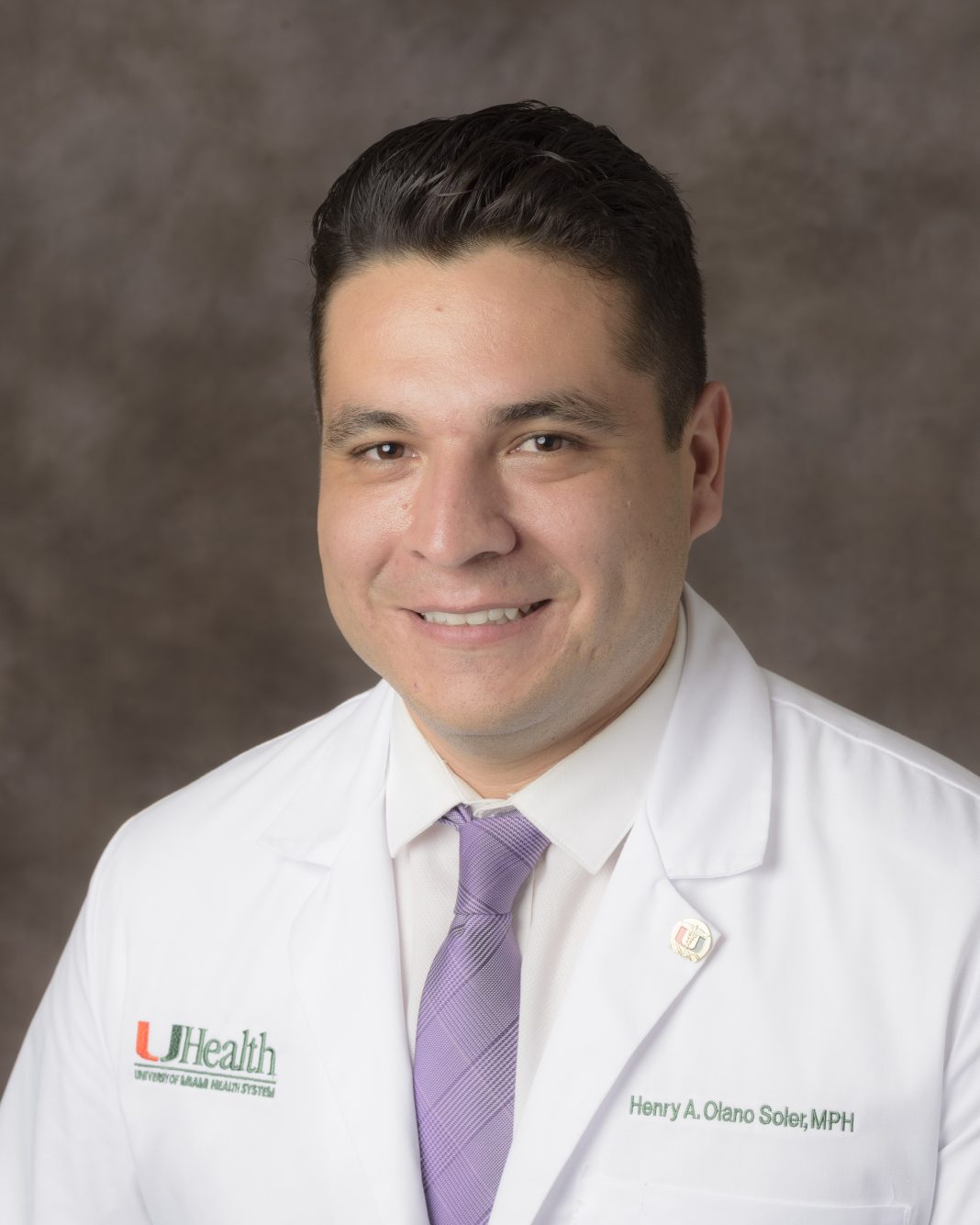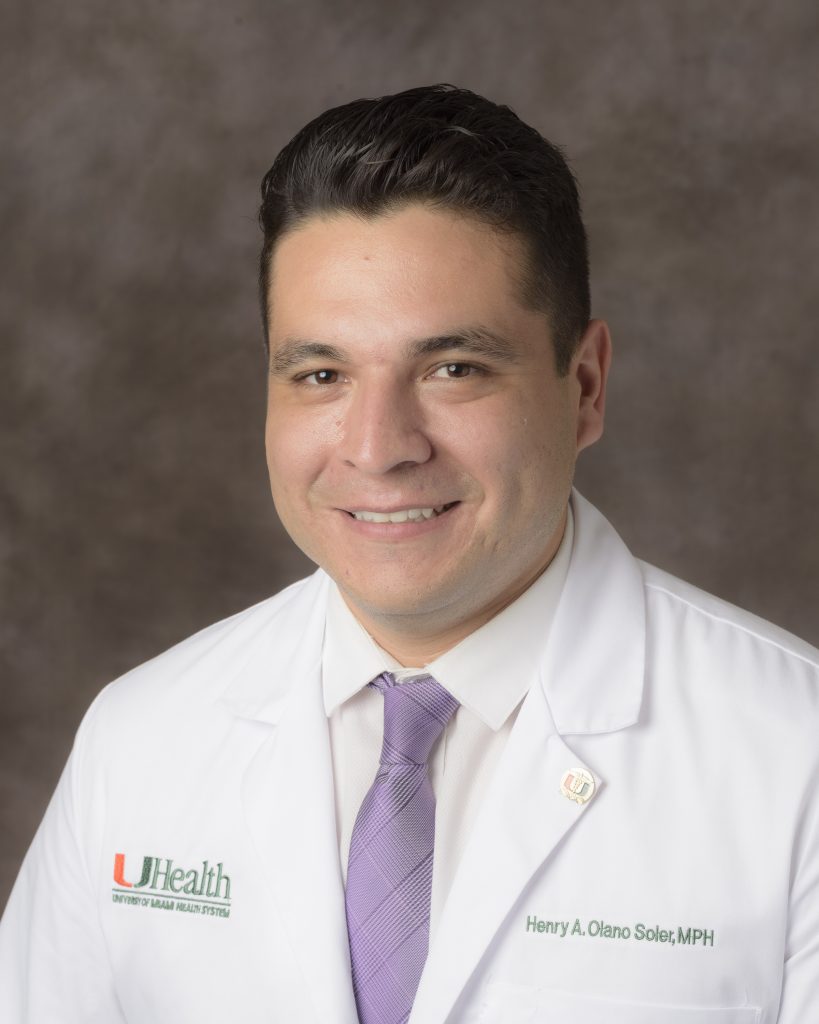Henry Olano-Soler graduated from the University of Miami Miller School of Medicine in 2015 with a Master of Public Health degree. Olano-Soler, now a third-year M.D. student, is the Miller school’s student government president and director of UM’s Nicaragua Medical Mission. He previously worked at the Centers for Disease Control and Prevention, where he contributed to the organization’s recovery effort during outbreaks including the 2016 Zika outbreak in Puerto Rico.
At the University of Miami’s Miller School of Medicine, we have witnessed the quick resurgence of coronavirus cases over the past few weeks. As a third-year medical student, I have seen the people behind the statistics: parents crying because their teenager may need a heart transplant after she recovers from COVID-19; nurses holding severely ill patients’ hands as they are anesthetized before intubation, knowing this might be the end; nurses tears visible through face shields as they tell patients to think of their families and all the happy moments they shared.
According to Dr. Erin Kobetz, the medical school’s vice provost for research and scholarship and a leader on the university COVID-19 task force, around 80% of the UM students testing positive for COVID-19 are unvaccinated, despite the fact that only around 23% of the total student body is still unvaccinated. It cannot be clearer why there are now mandates for medical students and university faculty and staff to be vaccinated. Having worked on the frontlines of the Centers for Disease Control and Prevention’s responses to tuberculosis outbreaks and the 2016 Zika epidemic in Puerto Rico, I have an apolitical perspective on COVID-19 vaccination and believe public health efforts should transcend party lines.
We have proven vaccines work when people accept them as a safe medical innovation capable of saving lives. Through vaccination, the world eradicated smallpox from the face of our planet, and it is ever so close to doing the same with polio. Both used to be deadly viruses, now reduced to historical plagues briefly mentioned in medical school courses on infectious disease.
In stark contrast, we are far from controlling COVID-19. As new strains arise around the world and we continue to search for effective treatments for those who contract COVID-19, there is only one effective option to speed up the resolution of this pandemic: vaccines. Although the creation of a COVID-19 vaccine was fast-tracked through the regulatory process, the Food and Drug Administration has since granted full approval to the widely-tested Pfizer-BioNTech vaccine. The approval process, which includes the examination of data gathered from 40,000 trial participants, has shown that the vaccine is safe. Now that we face a new, more contagious wave of COVID-19, it is time for our university to extend the vaccination mandate to the entire student body. This is the only way in which we can reasonably protect everyone, including those who are immunocompromised and at a higher risk of severe illness and hospitalization. It is also our responsibility to surrounding communities to serve as an example of evidence-based practices taking precedence over partisan politics.
If we want to rid ourselves of COVID-19’s grasp on our lifestyles, everyone who does not have a medical or religious reason to decline a COVID-19 vaccination should be vaccinated. UM already requires vaccination against other deadly infectious diseases — hence why we don’t see recurrent outbreaks of measles on campus. It is ultimately up to us students to realize how much power we have to keep each other safe. The simple act of getting vaccinated can help us return to normalcy and serve as an inspiration to a city where many are suffering from the loss of their loved ones.
Disclaimer: These views are my personal opinions and not those of the Miller School of Medicine or its student government.







